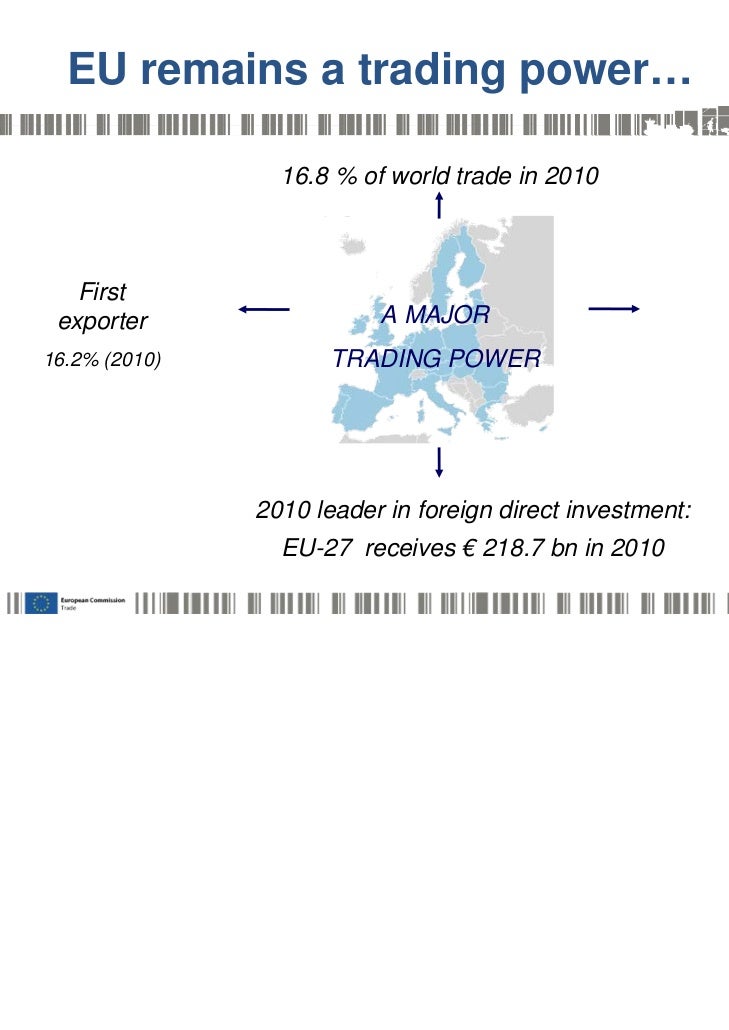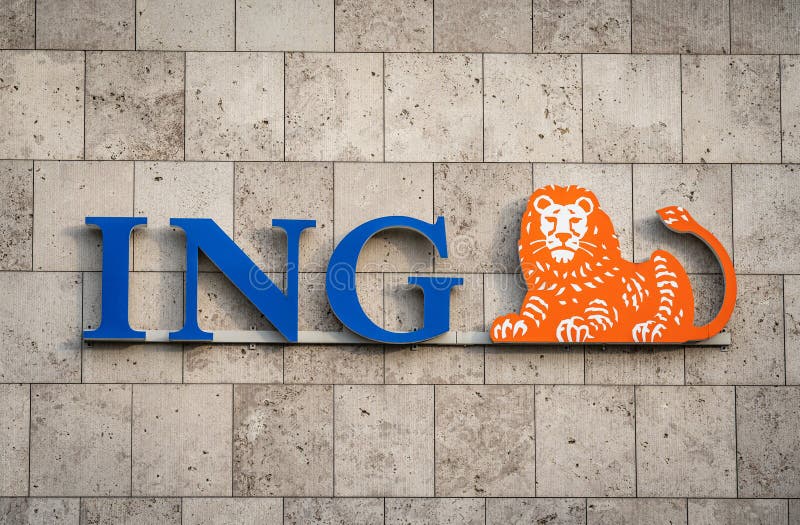European Union Trade Policy: Macron's Advocacy For Intra-EU Purchases

Table of Contents
The Rationale Behind Macron's Push for Intra-EU Purchases
Macron's initiative to prioritize Intra-EU purchases stems from a blend of economic and geopolitical motivations. The aim is to create a more resilient and self-sufficient European Union, less vulnerable to global economic shocks and supply chain disruptions.
- Increased resilience against global economic shocks and supply chain disruptions: The COVID-19 pandemic starkly highlighted the EU's dependence on non-EU countries for essential goods, exposing vulnerabilities in its supply chains. Prioritizing Intra-EU purchases aims to mitigate this risk.
- Support for European industries and job creation within the EU: By increasing demand for goods and services produced within the EU, this policy seeks to stimulate economic growth, create jobs, and strengthen European industries.
- Reduced reliance on non-EU countries, enhancing strategic autonomy: Reducing dependence on external suppliers is seen as crucial for enhancing the EU's strategic autonomy and its ability to act independently on the global stage. This is particularly relevant in sectors considered strategically important, such as pharmaceuticals and technology.
- Promotion of sustainable and ethical sourcing practices within the EU: Focusing on Intra-EU purchases allows for greater scrutiny of production processes, potentially leading to improved environmental and social standards.
Further Detail: The EU's reliance on imports, particularly in sectors like pharmaceuticals and critical raw materials, has been a major concern. Data from Eurostat consistently shows a significant trade deficit in certain key areas, emphasizing the vulnerability of relying heavily on external markets. The reliance on imports from China and other non-EU countries for essential medical equipment during the height of the pandemic serves as a powerful example of the risks involved.
Potential Benefits of Increased Intra-EU Purchases
A significant increase in Intra-EU purchases holds the potential to yield substantial positive economic impacts for the EU as a whole.
- Stronger economic growth within the EU: Increased demand for domestically produced goods and services can stimulate economic activity and boost GDP growth across member states.
- Enhanced competitiveness of European businesses on a global scale: A larger, more integrated internal market fosters economies of scale, enabling European businesses to compete more effectively on the global stage.
- Creation of high-skilled jobs and improved living standards: Increased production within the EU will likely lead to job creation, particularly in high-skilled sectors, resulting in improved living standards for EU citizens.
- Strengthened ties and cooperation among EU member states: A policy that fosters Intra-EU trade can strengthen economic ties and political cooperation among EU member states, promoting greater integration and solidarity.
Further Detail: Sectors such as renewable energy technologies, advanced manufacturing, and sustainable agriculture are poised to benefit significantly from increased Intra-EU demand. The policy could also stimulate regional economic development, particularly in regions currently lagging behind in terms of economic growth. This targeted approach to stimulating regional economies could help reduce economic disparities within the EU.
Challenges and Potential Drawbacks of Prioritizing Intra-EU Purchases
While the benefits are considerable, prioritizing Intra-EU purchases also presents several challenges and potential drawbacks.
- Higher prices for consumers due to reduced competition: Limiting access to goods and services from non-EU countries could lead to reduced competition and potentially higher prices for consumers.
- Potential trade disputes with non-EU countries: A protectionist approach to Intra-EU purchases could trigger retaliatory measures from non-EU trading partners, leading to trade disputes and harming EU export industries.
- Difficulties in ensuring fair competition within the EU's internal market: Implementing a policy that favors Intra-EU purchases requires careful consideration to ensure a level playing field for all businesses operating within the EU's internal market, avoiding the creation of monopolies or cartels.
- Increased bureaucracy and administrative burdens for businesses: The implementation of new regulations and administrative procedures to enforce Intra-EU purchase preferences could create additional burdens for businesses.
Further Detail: The potential for protectionism is a significant concern. While aiming to boost domestic industries, a poorly designed policy could stifle innovation and efficiency by shielding less competitive firms from external pressure. Ensuring a balance between promoting Intra-EU trade and maintaining open and fair competition within the EU is crucial.
The Role of EU Institutions in Shaping Intra-EU Trade Policy
The European Commission plays a central role in shaping and implementing EU trade policy, including the push for increased Intra-EU purchases.
- The Commission's role in developing and implementing trade regulations: The Commission is responsible for proposing legislation, negotiating trade agreements, and enforcing EU trade rules.
- The influence of the European Parliament and Council of the EU: The European Parliament and the Council of the EU have the power to amend and approve legislation related to trade policy, playing a crucial role in shaping the final policy outcome.
- The impact of lobbying efforts from various stakeholders: Businesses, industry associations, and other stakeholders actively lobby EU institutions to influence the direction of trade policy.
Further Detail: Ongoing discussions within the EU institutions will be critical in determining the specific mechanisms for promoting Intra-EU purchases. Potential legislative changes will have significant impacts on businesses operating within the EU, requiring careful consideration of the balance between promoting domestic industries and maintaining a competitive, open market.
Conclusion
Macron's advocacy for Intra-EU purchases presents a complex policy challenge. While aiming to enhance the EU's economic resilience and strategic autonomy, it also carries risks of higher prices for consumers and potential trade disputes. The success of this initiative hinges on the careful consideration of both the benefits and challenges, ensuring a balanced approach that promotes sustainable growth within the EU while maintaining open and fair trade relations with the rest of the world. Further research into the implications of increased Intra-EU purchases is crucial for understanding the future of European trade policy. Engage in the ongoing discussion surrounding Intra-EU purchases and their impact on the EU's economic future. The debate on Intra-EU Purchases is far from over, and understanding its nuances is vital for stakeholders across the EU.

Featured Posts
-
 Wtt Star Contender Chennai Oh Jun Sungs Thrilling Victory
May 22, 2025
Wtt Star Contender Chennai Oh Jun Sungs Thrilling Victory
May 22, 2025 -
 2024 Ing Group Form 20 F A Comprehensive Overview
May 22, 2025
2024 Ing Group Form 20 F A Comprehensive Overview
May 22, 2025 -
 Tory Councillors Wife Migrant Hotel Fire Rant Not Intended To Incite Violence
May 22, 2025
Tory Councillors Wife Migrant Hotel Fire Rant Not Intended To Incite Violence
May 22, 2025 -
 Musique Live Le Hellfest Au Noumatrouff
May 22, 2025
Musique Live Le Hellfest Au Noumatrouff
May 22, 2025 -
 Original Sin Season 1 Revisiting Dexters Handling Of Debra Morgan
May 22, 2025
Original Sin Season 1 Revisiting Dexters Handling Of Debra Morgan
May 22, 2025
Latest Posts
-
 American Couple Arrested In Uk After Appearance On Bbc Antiques Roadshow
May 22, 2025
American Couple Arrested In Uk After Appearance On Bbc Antiques Roadshow
May 22, 2025 -
 Antiques Roadshow Couple Imprisoned For Illegal National Treasure Trafficking
May 22, 2025
Antiques Roadshow Couple Imprisoned For Illegal National Treasure Trafficking
May 22, 2025 -
 Updated Trans Australia Run World Record Attempt
May 22, 2025
Updated Trans Australia Run World Record Attempt
May 22, 2025 -
 Bbc Antiques Roadshow Couple Jailed For Unknowingly Trafficking National Treasure
May 22, 2025
Bbc Antiques Roadshow Couple Jailed For Unknowingly Trafficking National Treasure
May 22, 2025 -
 Trans Australia Run The Race To Break The World Record
May 22, 2025
Trans Australia Run The Race To Break The World Record
May 22, 2025
